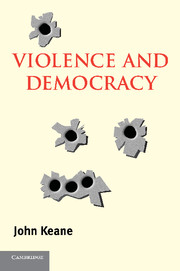6 - Uncivil wars
Published online by Cambridge University Press: 24 May 2010
Summary
[T]he dead tree gives no shelter, the cricket no relief and the dry stone no water …
T. S. Eliot (1922)In well-functioning, long-established civil societies such incivility is only a mild trend. The tendency of civil society to kill itself, to degenerate into incivility on a grand scale, is normally kept in check by a combination of self-restraint, acts of charity, simple kindness, media coverage and intervention by others, whether families, friends, strangers, social care professionals or the courts and the police. But whenever these mechanisms weaken or break down, civility evaporates, sometimes overnight. Actually existing civil society then begins to resemble an uncivil society. There develops a battleground, in which the stronger – thanks to the survival of some social bonds and certain civil liberties – enjoy the licence to twist the arms and clip the ears of the weaker. Under extreme conditions, an uncivil society can haemorrhage to death. Uncivil war looms; then it erupts, with a fury. The distinction between ‘good’ and ‘bad’ violence is destroyed. Social and political constraints on vengeance dissolve. Reprisals double, then triple. Blood appears everywhere: on walls, on the ground, underfoot in deep pools. Victims are shot at, herded at gunpoint from their burning homes. They are summarily executed in nearby houses, or marched in columns to railway sidings, past rotting corpses, to be trucked off to makeshift concentration camps, where they are raped or castrated and then made to wait, with bulging eyes and lanternous faces, for the arrival of their own death.
- Type
- Chapter
- Information
- Violence and Democracy , pp. 109 - 127Publisher: Cambridge University PressPrint publication year: 2004



